Careers in Plant Synthetic Biology Part II: Computational Synthetic Biology
In part II of the series looking at careers in Plant Synthetic Biology I reached out to Valentin Zulkower who works as the Software Manager of the Edinburgh Genome Foundry (EGF), Scotland, UK, to find out about computational jobs.
In what ways can computational biologists contribute to synthetic biology?
As a foundry we work on a particular aspect of that question: we take the burden of DNA assembly off the biologist’s shoulders and have it done by our robots and software instead, which is faster and more reliable.
The development of synbio applications is an iterative and expensive process. Software can help predict outcomes and catch mistakes early to maximize the success of each iteration.
Lab operations are often tedious and human errors can be costly. Software can free your hands (by operating robots) and your head (by automating small decision-making), allowing you to focus on more important things.
A lot of the data you manipulate in synbio projects is human-unfriendly (long DNA sequences, cryptic parts names, raw experimental data, etc.). Software can offer friendly interfaces to help you track, compare and analyze the outcomes of your projects.

The Edinburgh Genome Foundry
What kind of tasks/projects do you work on?
We have a very small software team fluctuating between 1 and 4 people, so I am involved in every computer-related aspects of the foundry. The projects we work on are available here but I will try to provide more context below.
Customers support:
- Project design: we meet with customers and discuss how to translate their ideas into automation-friendly and scalable assembly projects. Some software is involved to quickly match a customer’s DNA sequence with a fitting cloning strategy.
- Sequence design: we use our software to “sculpt” DNA sequences until they fit at the same time the customer’s specifications, our own specifications (meant to ensure assembly success), and the specifications of our DNA fragments providers.
- Web interfaces: we dream of a web portal where users could define any project and in one click have it sent to our robots, the manufacturing process starting automatically with minimal human intervention. In practice, the variety of customer projects and assembly strategies makes it difficult to build such an interface – this is an open problem – but like many other foundries, we are trying hard. In the meantime we build small, targeted web apps which allow users to design some aspects of their projects.
Operators support:
Our software’s main role in the foundry is to make our biologists happy, mostly by automating repetitive and stressful tasks so they can focus on more interesting problems, such as developing new processes and services.
Current we develop software to:
- Verify that the DNA we build is harmless (this is an increasingly hot research topic for foundries).
- Quickly validate projects and identify those that will not assemble as expected.
- Write robotic instructions in particular to translate a customer assembly project into a series of cherry-picking instructions (generally a spreadsheet) for our liquid handlers.
- Automatically plan quality control of the assemblies: decide which enzymes will be used for restriction digests, which primers will be used for Sanger sequencing, how many clones should be picked and verified, etc.
- Turn quality control data into human-friendly reports where the Foundry staff can quickly identify failed and successful assemblies.
IT support:
This is mostly making sure that our web services are up, and that our computers are properly backed up and networked, that our home page infos are up to date, etc.
What are the types of jobs someone might see advertised?
On the wet lab side our biologists were generally recruited after a PhD in molecular biology (+ 0-2 postdoctoral projects) on positions such as, “Application Scientist”, “Technologist”, etc.
The PhD requirement ensures that they can quickly wrap their head around the research projects they will implement on the platform, and they will understand the underlying chemistry/biology to optimize our automated processes.
On the software side larger companies may use more generic job titles. It is really the job description and the focus of the company that will tell you how much contact with synthetic biology you will have. Some roles you will typically see advertized are:
- “Frontend Engineer” if you make interfaces for synthetic biologists
- “Backend Engineer” for people working on algorithms and databases
- “Bioinformatician” if you work on sequence design
- “Data scientist” if you work on analytics or predictive modeling
- “LIMS specialist” if you develop custom lab data management software.
- Even “Automation engineer” positions can have a lot to do with synbio and software.
Job offerings in the field constantly evolves, for instance foundry-related Machine Learning and AI positions are on the rise.
Because we are a smaller software team at the EGF we look for versatile people who are interested in doing several of these jobs at the same time. For instance we are now hiring a “Senior Software Engineer for Synthetic Biology Automation”. While BSc + experience could be enough to implement most software, we would be more comfortable with MSc or PhD level to ensure that the developer can write sophisticated computational synbio software.
If someone has mainly worked at the bench, or is coming straight out of a degree program, what kind of training/skills/experiences would be useful?
For a wetlab positions:
- Cloning experience and a curiosity for advances in cloning/genome editing etc.
- A real interest in how to organize biology projects and manage the data, in particular for collaboration within a team.
- If you seek an “automation engineer” position (working with robots), exposure to complex lab equipment is a plus (automated liquid handlers, complex assay robots).
- Because we spend a lot of time on computers, we would look at clues that you are not computer-averse: maybe you learned a language ? Do you use modern sequence editors to handle DNA data, instead of Word ? etc.
For computational positions:
I would definitely recommend having at least several computational projects to show off (not everyone has an opportunity during their PhD, but data analysis, websites and other side projects count).
A public software portfolio (scientific publications, Github projects) will help us evaluate and application. We look especially for clean code and documentation with a good communication around the project: in a Foundry you will speak about your software with mostly non-computational people.
We also appreciate computational candidates who are aware of good software practices which you don’t always meet in academia: using coding standards, version control, test suite, etc. [Editor’s note: worth checking out datacarpentry for those who are interested]
Regarding programming languages and frameworks, different foundries may have their own preferences. For instance,some companies in the industry may use Java, Go, and React. At the EGF we went with Python and VueJS which enable to prototype new ideas very fast, and have a lower entry barrier (I would highly recommend them to bench people wanting to develop software skills).
Finally, evene for computational jobs, having some experience at the bench is a great plus! It’s nice to know that you have been in the shoes of the people we are trying to help. Otherwise, a real interest for cloning methods and genome engineering techniques helps too.
Can you suggest how someone might get into foundry work?
I am sure most foundries are happy to get contacted directly. Academic and industrial foundries also sometimes work with research labs, so you may end up finding a postdoc position in collaboration with a foundry, which is a way to get a foot in the door.
One thing to keep in mind when looking for foundry positions is that many facilities and companies out there don’t call themselves “foundry” but have very similar activities in intern (i.e. use some level automation to deliver high-throughput synbio projects). For instance, DNA synthesis companies, protein development companies, pharmaceutical companies, academic facilities like Synbiochem in Manchester, REALCAT in Lille, etc.
Do you have any advice for someone interested in becoming a computational synthetic biologist?
Synthetic biology and software engineering are two vast and fast-moving fields and it may take years to get a decent grasp of both (if that is possible at all) but it is worth it, the projects are very satisfying, there are many interesting computational engineering problems waiting to be solved, and software can make a lot of difference in a synbio facility, even in the short term.
It is nice to have a specialty but try to be a generalist too, i.e. learn a bit about everything software and synbio, because in both fields just being aware that a certain solution exists can save a lot of time.
Modern web frameworks are harder to learn, but they also save a lot of time on the long term. It used to take me weeks to write web apps which I can now finish in hours. This makes me much more comfortable to prototype new ideas, and I have more time for thinking about higher-value problems.


/preview.png)
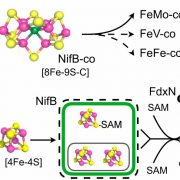
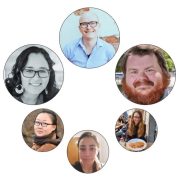
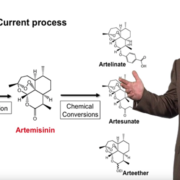
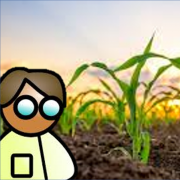
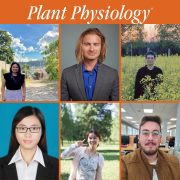
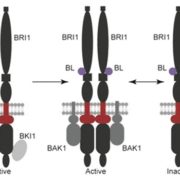


Leave a Reply
Want to join the discussion?Feel free to contribute!